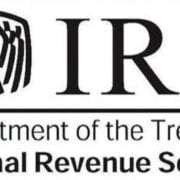Sheriff Warns Folks Are Scamming Using His Name
In another brazen scam, unlawfully using the names of local law enforcement officials, a Henderson resident is out $14,000.
Vance County Sheriff Curtis Brame said the local scammers used his name and that of Lieutenant Goolsby. The victim in this case was convinced to go to a local Food Lion and send out a money order in the amount of $14,000, under the false impression that it would keep somebody out of jail or out of the reach of law enforcement.
And that’s simply not true and not how it works.
Brame wants residents to know, first of all, that neither he nor any personnel of the sheriff’s office will ever ask anyone via telephone call or text message for sensitive personal information. In an earlier scam case back in July, Brame told WIZS, “My staff…will knock on your door and ask you to come to our office,” adding that deputies will provide badge numbers, call numbers and other official information identifying them as sheriff’s deputies.
The sheriff urges members of the public to be vigilant to avoid being taken in by scammers.
“Never say the word ‘yes’ to these people,” he said. Never provide personal information like dates of birth and Social Security numbers to people via email or text message.
An investigation is underway in the case, and the Henderson Police Department is conducting it because the crime happened in the City.


